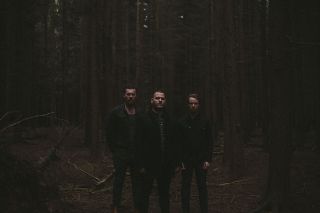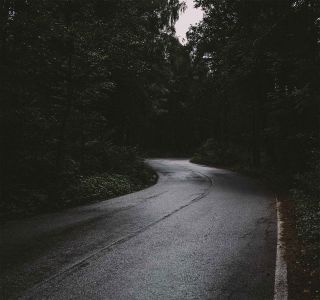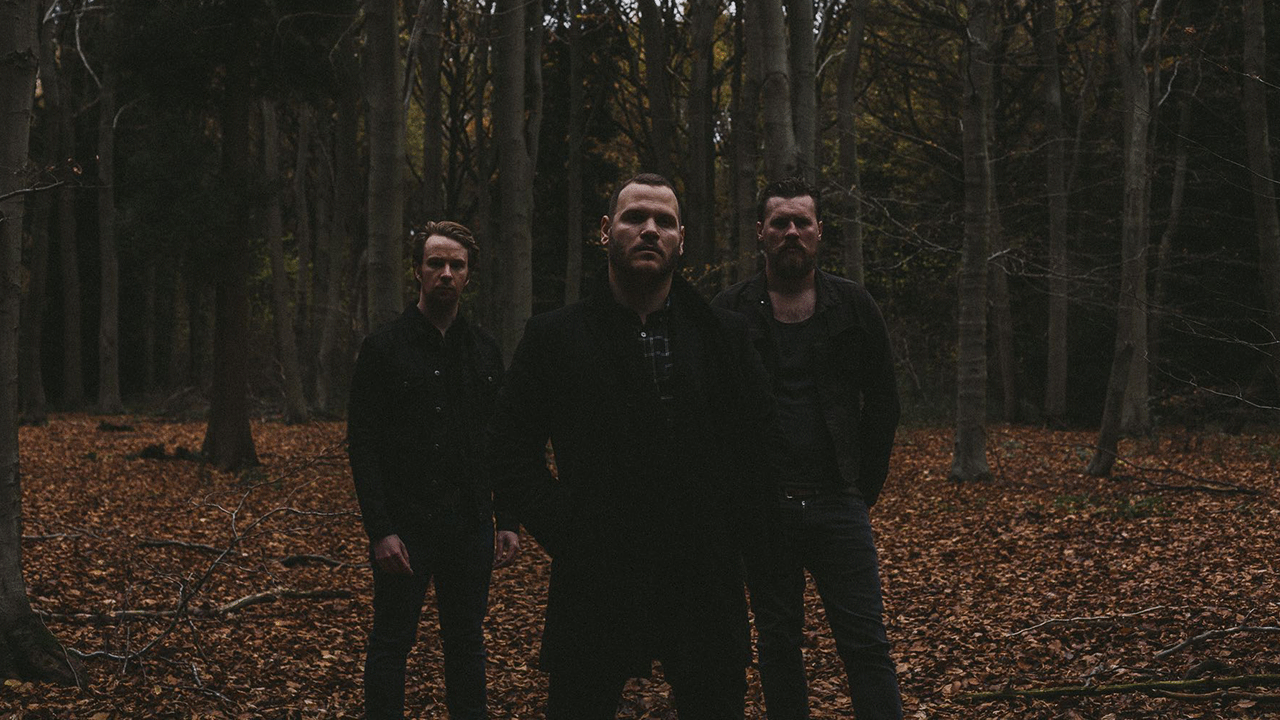Nottingham alt.rock trio The Barnum Meserve are premiering their new album, When All Is Lost, exclusively with TeamRock.
Mixing wide-screen cinematic soundscapes with kitchen-sink instrumentation – for a sound they’ve dubbed as “Nine Inch Nails meets Hans Zimmer” – the band’s second album owes as much to twinkling, optimistic indie-pop and classic prog tropes as it does Trent Reznor’s brooding industrial rock.
We catch up with bassist Dylan Griffiths to find out more about the album, and what the band have planned for next.
When All Is Lost is a pretty ominous title for an album. What’s the story behind the name?
Our debut album was self-titled, so being our second full length album, we definitely needed to give it a title! As with many of our song titles it’s sometimes hard to remember how they came to be. The final track on the album is also titled When All Is Lost, so it felt right to name the album after the final song on the album. That song kind of captures all of the themes from the album. It’s the longest track of the album, clocking in at just under seven minutes. It’s definitely a grand finale to the album so to speak. We take track listings very seriously and believe an album needs to have a strong beginning and end. Naming the album after the final song just felt like the right decision.
What sort of themes does the album cover?
There’s definitely a few stand out themes throughout the album. Loss is definitely one of its primary themes, as you can probably guess from the album title! A few of us experienced loss during the writing of the album, but in different ways; namely the loss of family members, the breakdown of relationships, etc. This probably makes the album sound slightly morbid! While these themes run throughout the album, there’s definitely moments of hope or optimism. The album is actually a lot more focused, and in places louder, than our debut album. I think we wanted to challenge ourselves for this album and write a slightly more concise and ‘to-the-point’ album. While we love our debut album dearly, it was definitely us finding our feet sonically, so to speak, when it comes to songwriting. When All Is Lost definitely feels more aggressive in places compared to our debut album.
What were your inspirations/influences on the album?
Film soundtracks play a large part in influencing our songwriting at times. You can definitely hear nods to Hans Zimmer, Clint Mansell and Thomas Newman, who Leon is a huge fan of. A large part of what makes our sound is orchestration. Leon primarily writes all the orchestration, then we bounce ideas around in our rehearsal space to see if it works or if it doesn’t. There’s definitely a few soundtracks [which] you can hear influenced the album, written by the above composers – we’ll leave it to the listeners to see which ones they think they can hear!
You’ve been said to “turn your back on the traditional rock band set up” – what does that mean?
I don’t think it was really intentional to have the set up we currently have being piano, bass guitar and drums. We’d all played in more conventional alternative rock bands before, specifically with guitars. I think initially we just wanted to try it out and see if it worked!
Over the years we’ve definitely progressed outside, specifically having the orchestration acting as kind of the fourth member of the band, as it’s equally important to the songs as all the other parts. I sometimes think it’s difficult to describe our songs – which in the grand scheme of things we’re grateful for, as I guess it shows some originality to our sound. But when we mention that we’re primarily piano, bass guitar and drums, people tend to have an idea on what that probably sounds like – like Ben Folds Five, or Keane, as there’s literally no other bands in the mainstream that have that set-up. The reality is we couldn’t be further from those bands in terms of sound! The downside of this is sometimes promoters or industry types (A&R, labels, etc.) have difficulty labelling us. We’ve honestly played with jazz bands to metal bands as sometimes promoters literally don’t know where to fit us! The good thing at times is we can pretty much adapt to what’s needed – namely we have quiet songs and we have loud songs. We’d definitely be able to give any metal band a run for their money in terms of volume!

What made you decide to ditch the guitars and create without them?
I think one of the reasons is Leon wanted to learn how to play to piano more. As mentioned previously, he’d played in what I guess would be called an alternative rock band, and wanted to give the piano ago. We’d known Paul (Moss Pearce, drums) for a few years from playing with a band he used to be in. Leon asked him on a off-chance meeting at a petrol station if he wanted to have a jam, the rest, as they say, is history!
What was your favourite story or anecdote from recording the album?
Our recording sessions are usually very time-conscious, so we’re usually super-busy trying to nail all the songs in as quick a time as possible, due to constraints of budgeting – time is money, etc. Saying that, we do definitely spend a large amount of time in writing – I think When All Is Lost took around 2 years to write, and we’re actually in the process of finishing writing our as-yet-to-be-named third album. Some of the songs that will feature on our third album were written back in 2014, so again making sure the songs are good is absolutely the most important thing to us.
I guess it’s less of an anecdote, but we’ve definitely learned a lot over the years when it comes to song writing, especially around not forcing creativity. As I’m sure a lot of bands and artists can identify with, sometimes you sit in a rehearsal room and there’s no vibe, or the song ideas you try just aren’t working. We’ve come to realise that this is OK. You honestly can’t force creativity, if there’s no vibe, it’s ok – come back next week and try again. It may feel like the end of the world at the time, but it’s really not. Creativity is as mysterious as music itself… Sometimes it’s there, others it’s not. The key is to capture it when it is!

Can you tell us a little about the artwork for the album?
The artwork image was taken by our good friend Fraser West (wetheconspirators.com). Fraser had spent some time in Europe taking photos. We definitely had a few contenders for the album image, but the dark road was one all of us loved. I think we prefer a striking image as opposed to having a load of text all over the cover. At a deeper level, the road kind of implies uncertainty – like you’re unsure what’s around the corner, be it good or bad.
The slightly strange thing about the album title and cover was that it was decided way before the strange and somewhat depressing state of 2017. Fraser’s been absolutely imperative to the album. He’s captured the cinematic themes in all the accompanying videos for the album and in the artwork and our band promo images. At times we’ve found it difficult working with other people because we want to have input and are very conscious of how we’re perceived. Fraser absolutely got what we we’re trying to do which has made the whole process of creating videos and artwork an absolute ease and pleasure.
What’s next for The Barnum Meserve?
We’ll be playing some shows around the UK for the remainder of 2017. Come check us out if you get the chance!
The the second half of 2017 we’ll also be finishing writing off our 3rd album and going back into the studio to record the album (it’s gonna be a killer album!) Once that’s complete we’ll probably be in 2018 where we’ll work out releasing the third album and probably start writing the fourth!

